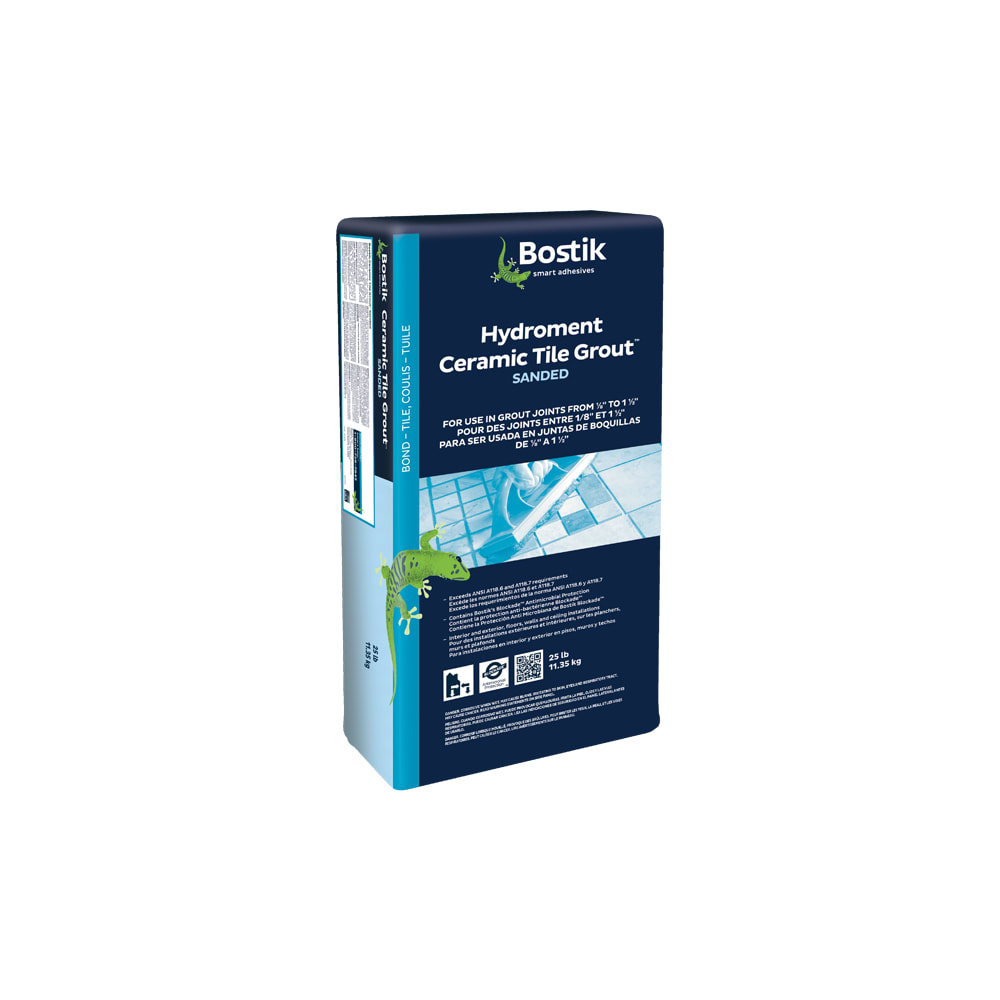- Home
- Education
- Buying Guides
- Buying Guide: Shop for Grout
Buying Guide: Shop for Grout
Grout can add to the beauty of your tiles and be a long-lasting feature in your home. Choose the right grout for your tile at LL Flooring.
Choosing the most suitable grout when installing tile or stone is crucial. Depending on a few factors, such as your desired result, tile type, and overall skill with grout, you can determine which kind of grout will work best for your project.
What is Grout?
Grout is a multipurpose filler that seals your flooring while finishing off the look of your floors. It maintains the rigidity of your flooring while preventing debris from getting in between your floor tiles. Grout also strengthens your flooring by binding the materials of your flooring together.

There are four grout varieties available, but they all fall into two categories: cement-based and resin-based.
To determine the kind of grout you'll need, check its standard label and find the A118 level. Cement-based grout will fall between the range of A118.6-A118.7 while epoxy grouts will fall under A 118.3. Choosing the type of grout best suited for your floors will keep them in optimum shape for as long as possible.
Types of Grout
Some grout is better suited for certain types of tile than others. You should take into account a few things before beginning the grout selection process, including being aware of your budget and skill level. Ultimately, when shopping for grout, you should already know what tile you'll be using for your project. This will help you decide which product will work best. Careful measurement between tiles will also help you find the perfect grout for your project. Additionally, consider that some grout is easier to use than others.
Sanded Grout:
Sanded grout falls under the cement-based category and is the most commonly used type of grout. Its popularity may, in part, be due to how DIY-friendly it is. If you're considering using sanded grout, keep in mind that it's best for tile separated by a space greater than 1/8-inch. The silica grains in sanded grout keep it from shrinking as much as unsanded grout does during the curing process. Sanded grout is also more durable than unsanded grout due to the silica grains and can withstand a more significant weight. Sanded grout can be used for dense, non-glass tiles, such as porcelain, ceramic, or stone, that resist scratches. Also, if you use sanded grout, consider sealing it to protect it from UV damage and discoloration. In summary, sanded grout: Works best for tile separated by a space greater than 1/8-inch Best for durable, scratch-resistant tile (not glass tile) Should be sealed against UV damage to protect it from discoloration Is DIY-friendly, even for beginners.
Unsanded Grout:
Similar to sanded grout, unsanded grout is cement-based. It works best if your tile or stone has a space smaller than 1/8-inch between separate tiles. Due to the smaller distance between the tiles, unsanded grout will require you to use a little more pressure to work it into the space. Unsanded grout is softer than sanded grout, but it works beautifully with vertical tiles, like those you might use on a wall. Unsanded grout won't scratch your tiles. However, because it doesn't have the silica to help hold the shape, unsanded grout is prone to shrinking. In short, unsanded grout: Works best for tiles separated by less than 1/8-inch, but needs more elbow grease to work it into the smaller spaces Won't scratch your tiles Works best on walls because it is not as durable as other grout materials Is DIY-friendly, but might require a little more skill.
Epoxy Grout:
Epoxy grout is a resin-based grout. Epoxy grout is waterproof and stain-resistant. You also don't have to worry about epoxy shrinking and cracking over time. Overall, epoxy is a strong, long-lasting material to use for grout. However, epoxy grout sets quickly and requires more skill and caution during the application process. Epoxy grout can cost more. It's safe to use on less durable tile materials as long as you prepare in advance and clean the tiles. In summary, epoxy grout: Works well with all tile materials, but sets quickly so should be applied carefully Is durable and can be used for flooring and walls Doesn't cause any concern regarding the distance between tiles Best suited for the experienced DIYer or professional installer.
TEC Power Grout:
TEC, a company that makes different types of flooring materials, makes Power Grout. Power grout is a relatively new type of grout that promises to be as durable and stain-resistant as epoxy while maintaining the DIY-friendliness of a cement-based grout. TEC Power Grout offers a lot of versatility in the style of tile and the distance between tiles for which it's most appropriate. You can use TEC Power Grout with a space between tiles ranging from 1/16-inch to 1/2-inch, and like epoxy, TEC Power grout is suitable for wet or dry areas. That is, TEC Power Grout combines many of the best features of various types of grout into one material. And, you can use it as a budget-friendly alternative to epoxy. In short, TEC Power Grout: Can be used for tiles separated by 1/16-inch to 1/2-inch Works well with all materials, Is durable, and stain-resistant, Is DIY-friendly.
Selecting the type of grout best suited to your flooring or home renovation needs will ensure that your project maintains its beauty over the long run. Be sure to measure beforehand, and choose a grout appropriate to your skill level.
LL Flooring offers a wide range of grout and other flooring materials. Look through our materials for your next home renovation project. If you have any further questions about grout, feel free to contact our flooring experts.